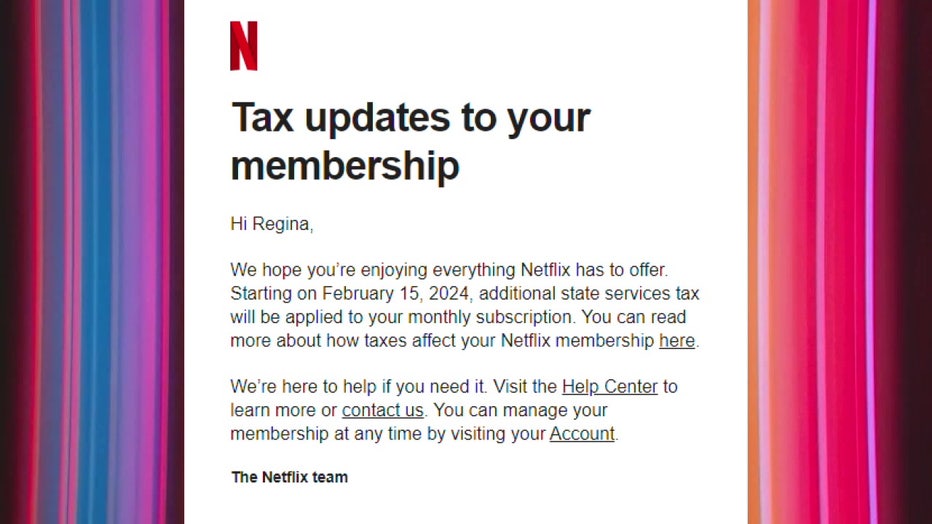Cable vs. streaming? TV viewers weighing options after Netflix, other streaming platforms, raise prices

Viewers weigh streaming vs. cable
The recent announcement that Netflix will raise its prices for customers in Florida put a spotlight back on a question many TV viewers ask themselves: what's the better option, cable or streaming services?
TAMPA, Fla. - The recent announcement that Netflix will raise its prices for customers in Florida put a spotlight back on a question many TV viewers ask themselves: what's the better option, cable or streaming services?
Last week, Netflix emailed its subscribers in Florida to notify them of a change coming to their bill in the form of an "additional state services tax" that will be applied to their monthly subscription.
READ: Netflix hints more price hikes coming in 2024, phasing out its cheapest, ad-free plan
That tax is called the communications services tax, which is set by the state at 5.07% and will be added to your Netflix bill starting Feb. 15.
"We’ve notified our members in Florida that they will start to see state services tax applied to their monthly bill beginning February 15," a spokesperson from Netflix said. "Netflix subscriptions in Florida are subject to both local and state tax as part of the Florida Communications Services Tax."
Despite such streaming services as Netflix, Disney+, and YouTube TV increasing prices in recent years, tech experts said streaming is still the most cost-efficient option for a lot of customers.
"One thing that's attractive about streaming as opposed to cable is that it's one price," said Ty Pendlebury, an editor for the tech and media publication CNET. "Most service chains charge that same amount wherever you live. If it's just the one cable [provider] in your city, for example, they can charge whatever they want. There's no competition there. So people are cutting the cord more and more each day because they're attracted to the lower prices [of] streaming TV."

In a recent survey, CNET compared cable and streaming prices nationwide and found the average cost for cable TV plus internet ranges from $130-200, but often far exceeds $200 for premium and DVR services.
Streaming services plus live TV and internet average about $130 and often include unlimited DVR. The cheapest option for folks who don't need live TV is streaming only, with most platforms ranging between $7-$20.
Pendlebury said viewers are increasingly willing to sign up and cancel services monthly.
"For example, if you know there's a big game coming up, or you want to watch some event, you can go, 'Okay, well, I'll pay this month, and I'll splurge, and I can just cancel it next month,'" he said, adding an antenna is also an option for viewers who just want the basics.
Florida's communications services tax, meanwhile, is not a new tax, as other streaming platforms like Hulu and Disney+ already charge it.
The communications service tax comprises two parts: the Florida communications services tax and the local communications services tax. The total communications services tax rate is the state rate, gross receipts rates, and local tax rate combined.
Netflix has not indicated why the company decided to begin charging Florida customers this month.

